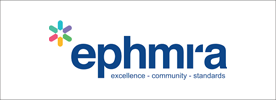
With the rise of global health issues, diverse patient populations, and varying healthcare systems, the ability to conduct robust international research has become a critical asset for organisations aiming to stay competitive and deliver high-quality care.
However, conducting global healthcare research is not without its complexities. Differences in culture, data standards, regulatory environments, and healthcare infrastructures can all pose significant challenges. To successfully navigate these complexities and derive meaningful insights from global data, organisations must adopt best practices that ensure the accuracy, relevance, and applicability of their research.
1. Understand the Local Context
One of the most important aspects of global healthcare research is understanding the local context in which data is collected and analysed. Healthcare systems, patient populations, and disease prevalence can vary widely from one region to another. Therefore, certain factors should be considered:
- Cultural Norms and Beliefs: Cultural attitudes towards health, illness, and treatment can influence patient behaviour, healthcare utilisation, and even the outcomes of clinical trials. Researchers should be aware of these cultural differences to ensure that data is interpreted accurately.
- Healthcare Infrastructure: The availability of healthcare resources, such as hospitals, clinics, and medical professionals, can impact the quality and accessibility of care in different regions. This, in turn, affects the data collected and its relevance to other settings.
- Regulatory Environment: Different countries have varying regulations governing healthcare research, data privacy, and clinical trials. It’s crucial to navigate these regulatory landscapes carefully to ensure compliance and maintain the integrity of your research.
Best Practice: Before initiating research in a new region, conduct thorough background research to understand the local context. Engage with local experts and stakeholders to gain insights and ensure that your research methods are appropriate and effective.
2. Ensure Data Accuracy and Consistency
Data accuracy and consistency are paramount in any research, but they are particularly challenging in global healthcare studies due to the diversity of data sources and collection methods. Inconsistent or inaccurate data can lead to misleading conclusions and poor decision-making.
- Standardise Data Collection Methods: To minimise variability, establish standardised protocols for data collection across all regions involved in the study. This includes using the same definitions, measurement tools, and reporting formats.
- Implement Rigorous Quality Control: Regularly monitor and audit the data collection process to identify and address any discrepancies. This can involve cross-checking data entries, verifying sources, and employing automated tools for data validation.
- Use Harmonised Data Standards: Where possible, adopt internationally recognised data standards and coding systems to ensure that data from different regions can be compared and integrated effectively.
Best Practice: Invest in training for all research staff to ensure they understand and adhere to standardised data collection protocols. Utilise technology and software solutions that facilitate data harmonisation and quality control across multiple sites.
3. Address Ethical Considerations and Patient Privacy
Ethical considerations are at the forefront of healthcare research, particularly when dealing with vulnerable populations or sensitive health data. When conducting global research, these ethical concerns are amplified by differences in legal frameworks, cultural norms, and patient expectations.
- Obtain Informed Consent: Ensure that all participants are fully informed about the nature of the research, its potential risks, and their rights as participants. Consent forms should be culturally appropriate and available in the local language.
- Protect Patient Privacy: Adhere to international and local regulations regarding data privacy. Implement data protection measures, including encryption, anonymisation, and secure storage, to safeguard patient information.
- Engage with Ethical Review Boards: Work closely with ethical review boards in each region to ensure that your research meets local ethical standards and addresses any potential concerns.
Best Practice: Develop a comprehensive ethical framework for your research that aligns with both international guidelines and local regulations. Regularly review and update this framework as new ethical challenges and regulations emerge.
4. Foster Collaboration and Partnerships
Global healthcare research often involves multiple stakeholders, including local healthcare providers, academic institutions, government agencies, and international organisations. Building strong partnerships and fostering collaboration is essential for the success of your research.
- Engage Local Experts: Collaborate with local researchers and healthcare professionals who have in-depth knowledge of the region’s healthcare system, patient population, and regulatory environment. Their insights can enhance the relevance and impact of your research.
- Build Trust with Communities: Establishing trust with local communities is critical for successful data collection and participant recruitment. Engage with community leaders, provide clear communication about the research, and ensure that participants understand how the research will benefit their community.
- Leverage Technology for Collaboration: Utilise digital platforms and tools to facilitate communication, data sharing, and project management across different regions. Virtual meetings, cloud-based data storage, and collaborative software can help bridge the gap between geographically dispersed teams.
Best Practice: Approach global healthcare research as a collaborative effort. Invest time and resources in building and maintaining strong partnerships with local stakeholders, and ensure that all parties are aligned with the research goals and methods.
5. Translate Research into Actionable Insights
The ultimate goal of global healthcare research is to generate actionable insights that can inform strategic decisions and improve patient outcomes. To achieve this, researchers must go beyond data collection and analysis, focusing on how to effectively communicate and apply their findings.
- Tailor Insights to Different Audiences: Different stakeholders, such as healthcare providers, policymakers, and industry leaders, may require different types of information. Tailor your findings to address the specific needs and interests of each audience.
- Develop Clear and Practical Recommendations: Translate complex data into clear, actionable recommendations that can be easily understood and implemented by healthcare organisations. Provide practical examples of how your findings can be applied in real-world settings.
- Monitor and Evaluate Impact: After implementing research-driven strategies, monitor their impact on healthcare outcomes and make adjustments as necessary. Continuous evaluation ensures that your research remains relevant and effective in addressing global healthcare challenges.
Best Practice: Create comprehensive reports and presentations that highlight the key findings of your research, along with actionable recommendations. Engage with stakeholders through workshops, seminars, and consultations to facilitate the adoption of your research insights.
Conclusion
Global healthcare research holds immense potential for driving innovation, improving patient outcomes, and informing strategic decisions. However, the complexities of conducting research on a global scale require careful planning, adherence to best practices, and a deep understanding of local contexts.
By following the best practices outlined in this blog, healthcare organisations can enhance the accuracy, relevance, and impact of their global research efforts, ultimately contributing to a more interconnected and effective global healthcare system.
Are you interested in learning more?





